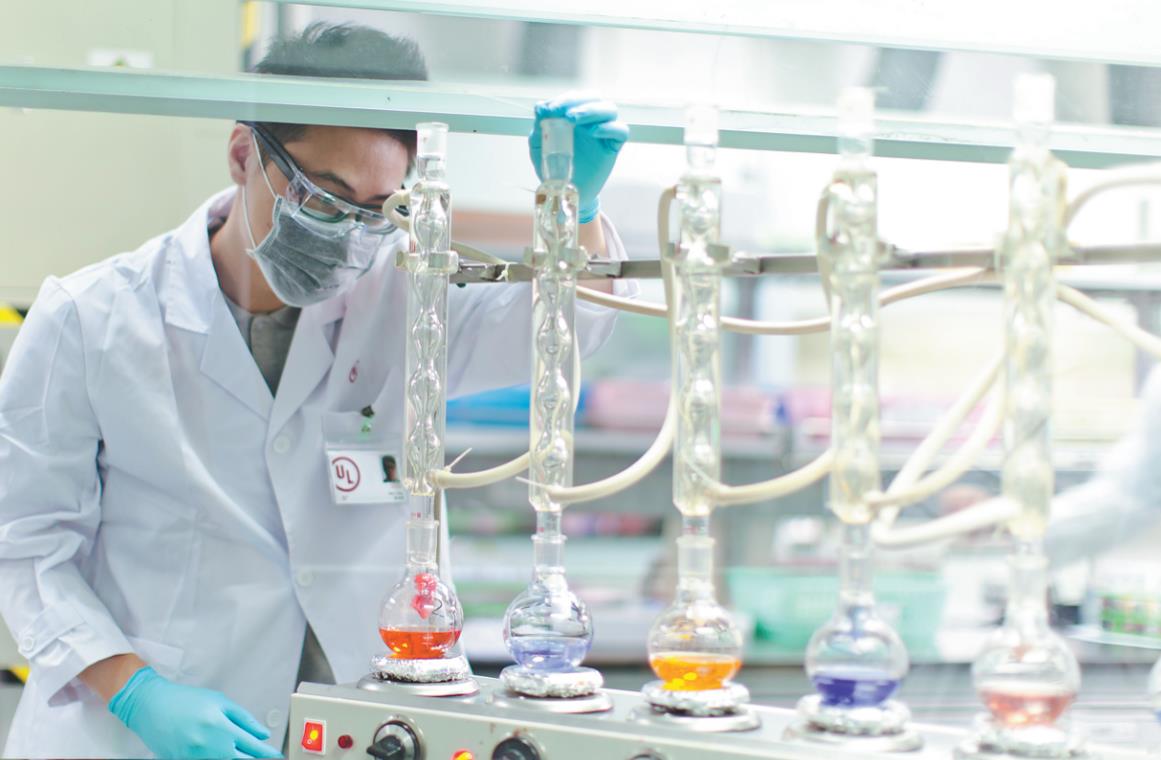UL plans to increase safety certification facilities as Chinese companies expand


UL, the Illinois-based safety certification company, plans to add more facilities in China's central and western regions over the next three years, having built a solid presence in the country's coastal regions, said a senior executive.
Boris Feng, vice-president and managing director of UL China, said internet-connected technologies, supply-side structural reform, industrial and consumption upgrades will present more opportunities for testing, inspection and certification services in China.
UL invested in its first global battery laboratory for power storage in Changzhou of East China's Jiangsu province in July. The Changzhou laboratory is expected to be operational in April 2020.
Feng said the group will build more labs in China's inland areas as domestic companies' demand for both exports and digital technologies to improve production efficiency has notably surged in recent years.
Under the plan, the Changzhou lab will provide a clutch of safety tests and solutions. These will include the following: battery safety design, battery performance and reliability verification, battery management system, functional safety, vehicle-to-grid charging solutions, grid integration, battery echelon utilization, energy storage systems and functional safety services to China's new energy vehicle manufacturers and power battery makers.
"China's industrial upgrade was inevitable," said Feng. "Even though many people these days are saying that manufacturing is shifting outward, this is a positive signal, because China's development has reached a certain level and it is reasonable to conduct international industrial capacity cooperation."
He said more digital solutions and sensors are being used on a large scale in Chinese factories. Carried out by industrial robots, the manufacturing process does not require human intervention.
"Our operation in China has to keep attempting to integrate global experience with local demands, and pay more attention to those emerging industries," he said, noting the country's upgrades across both software and hardware platforms must keep pace with manufacturers' high demand for innovative services.
Supported by nearly 3,000 employees in China, UL runs six labs across Suzhou, Shanghai, Guangzhou, Dongguan and Shenzhen. With its certification services and expertise in different fields, it assists domestic manufacturers from different industries exporting their products to global markets
With a growing number of Chinese companies shipping products to various overseas markets, securing foreign certificates has become popular and necessary. Therefore, if these Chinese companies want to expand their businesses abroad, they have to meet other countries' standards for product safety and compliance, he said.
In addition to providing testing and certification services to fire safety and consumer electronics products, the firm has entered the areas of consumer and industrial goods in China, including automobiles, clothes, toys and groceries, as well as non-physical products, such as software and driverless security.
Zhao Ying, a researcher at the Beijing-based Institute of Industrial Economics, which is part of the Chinese Academy of Social Sciences, said that rising incomes, accelerating urbanization and diversified food options in China are further driving demand for safer food and industrial products, as well as quality consumer goods, such as furniture, vehicle parts and cosmetics.
Attracted by China's population base, more manufacturing and consumer goods are now produced and sold in China than anywhere else, he said, adding Chinese shoppers are also keen to know the quality of the products they purchase.
UL's Feng said the Belt and Road Initiative will lead to notable prospective benefits to both China and other parts of the world as it has proved to be a strong force linking people and economies via cross-border activities with the potential that many regions can achieve social prosperity.
Because of the improvement in infrastructure, transportation, and healthcare, digital-related manufacturing in economies is able to restore strength of the global economy, he said. UL will continue to work with its partners such as the Saudi Arabian Standards Organization to provide services for businesses participating in the BRI in the long run.
UL entered the Chinese market in 1980, and has so far provided testing and certification services to over 22,000 local manufacturers across the country.
The US company currently has over 14,000 employees globally, distributed across its connected technologies business unit, and the retail industry business unit.




































